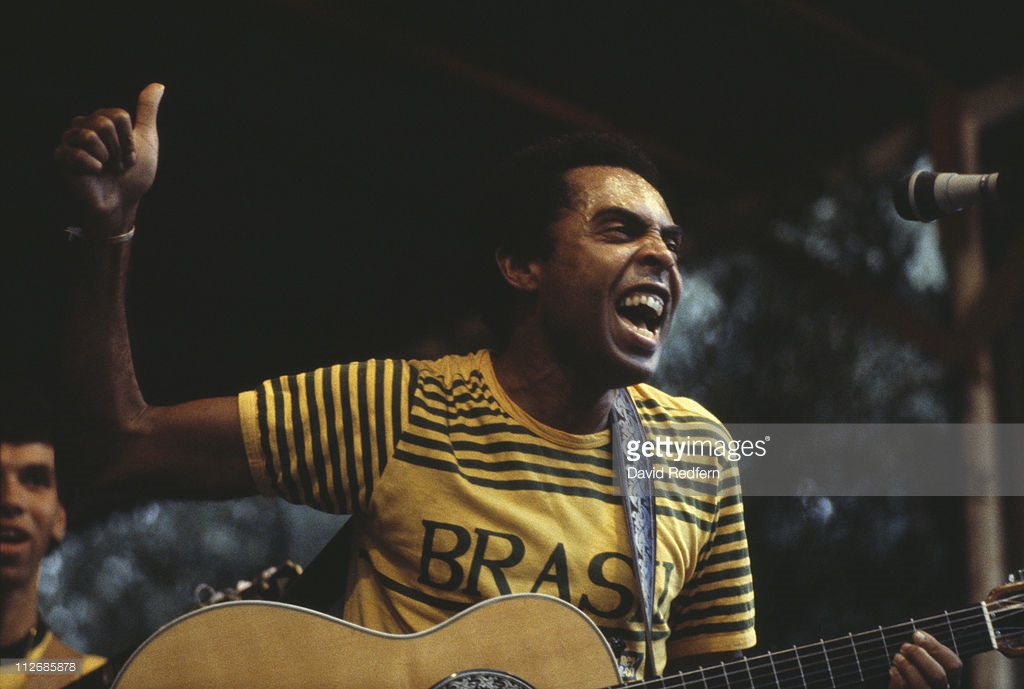Born Gilberto Passos Gil Moreira in Salvador, Bahia, Gilberto Gil began playing music professionally as a teenager when he joined his first band. Although he grew up listening to the forró music of his native northeast region, he started out making music in the Bossa Nova music genre. He later became a pioneer in the Tropicália and Música Popular Brasileira (MPB) musical movements that emerged in the 1960s when he started to focus the lyrics of his songs on politics and social awareness. While exiled to London by Brazil’s military government in 1969, Gil became exposed to Jamaican reggae. Upon returning back to Salvador in 1972, Afro-Bahian afoxé groups and the samba-reggae sounds were emerging and Gil joined the Filhos de Gandhi afoxé. He later worked with Jamaican reggae artist, Jimmy Cliff, who he had encountered earlier in London, to recreate the classic Bob Marley song, “No Woman No Cry,” which introduced reggae to Brazil. He is a classic timeless, musician who has had a long career, perhaps, because he is well-known for his musical adaptability and diversity with his ability to blend music styles.
While maintaining a full-time music career, Gilberto Gil was also actively working the political scene to advocating for environmental protection. In 2003, under the Lula da Silva administration, he was appointed Brazil’s Minister of Culture, becoming only the second black person to serve in the nation’s cabinet.







Leave a Reply